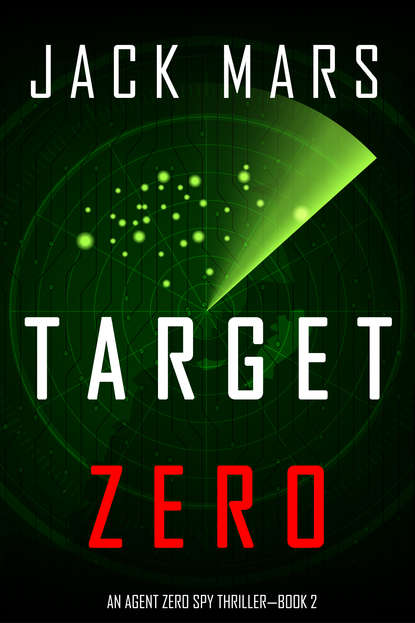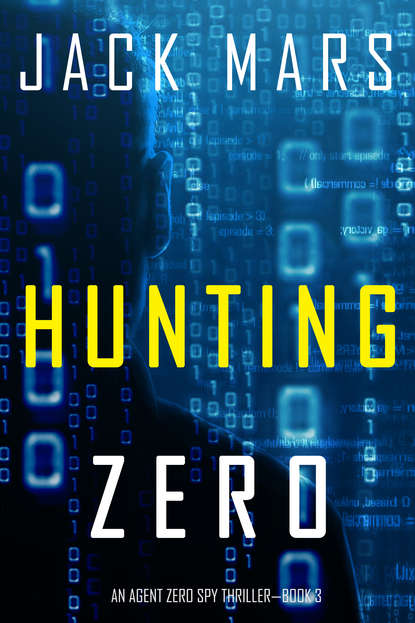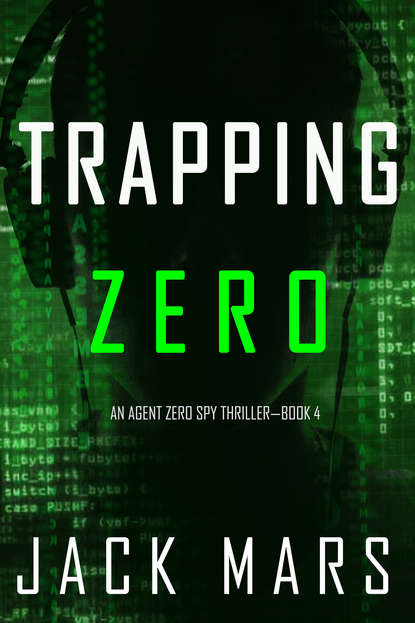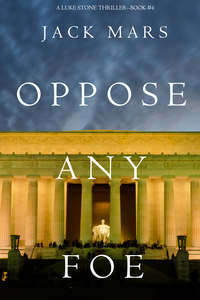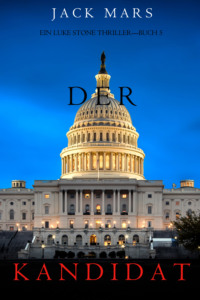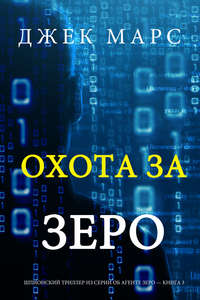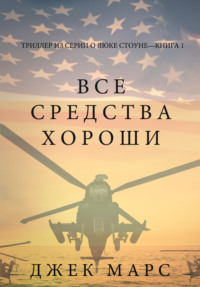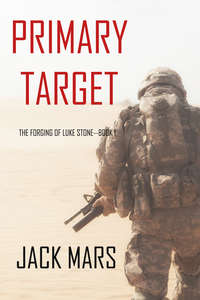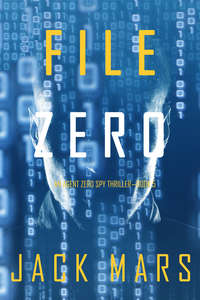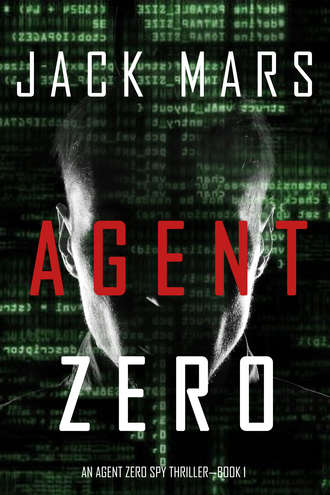
Полная версия
Agent Zero
“Linda!” Reid hissed sharply. Two elderly men passing by looked up at his outburst. “Where are the girls?”
“They’re here,” she panted. “They’re both here, at the house with me.”
“They’re safe?”
“Yes, of course. Reid, what’s going on?”
“Did you call the police?”
“Not yet, no… on TV they always say you have to wait twenty-four hours to report someone missing… Are you in some sort of trouble? Where are you calling me from? Whose account is this?”
“I can’t tell you that. Just listen to me. Have the girls pack a bag and take them to a hotel. Not anywhere close; go outside the city. Maybe to Jersey…”
“Reid, what?”
“My wallet is on my desk in the office. Don’t use the credit card directly. Get a cash advance on whatever cards are in there and use it to pay for the stay. Keep it open-ended.”
“Reid! I’m not going to do a thing until you tell me what’s… hang on a sec.” Linda’s voice became muffled and distant. “Yes, it’s him. He’s okay. I think. Wait, Maya!”
“Dad? Dad, is that you?” A new voice on the line. “What happened? Where are you?”
“Maya! I, uh, had something come up, extremely last minute. I didn’t want to wake you…”
“Are you kidding me?” Her voice was shrill, agitated and worried at the same time. “I’m not stupid, Dad. Tell me the truth.”
He sighed. “You’re right. I’m sorry. I can’t tell you where I am, Maya. And I shouldn’t be on the phone long. Just do what your aunt says, okay? You’re going to leave the house for a little while. Don’t go to school. Don’t wander anywhere. Don’t talk about me on the phone or computer. Understand?”
“No, I don’t understand! Are you in some kind of trouble? Should we call the police?”
“No, don’t do that,” he said. “Not yet. Just… give me some time to sort something out.”
She was silent for a long moment. Then she said, “Promise me that you’re okay.”
He winced.
“Dad?”
“Yeah,” he said a bit too forcefully. “I’m okay. Please, just do what I ask and go with your Aunt Linda. I love you both. Tell Sara I said so, and hug her for me. I’ll contact you as soon as I can—”
“Wait, wait!” Maya said. “How will you contact us if you don’t know where we are?”
He thought for a moment. He couldn’t ask Ronnie to get any further involved in this. He couldn’t call the girls directly. And he couldn’t risk knowing where they were, because that could be leverage against him…
“I’ll set up a fake account,” said Maya, “under another name. You’ll know it. I’ll only check it from the hotel computers. If you need to contact us, send a message.”
Reid understood immediately. He felt a swell of pride; she was so smart, and so much cooler under pressure than he could hope to be.
“Dad?”
“Yeah,” he said. “That’s good. Take care of your sister. I have to go…”
“I love you too,” said Maya.
He ended the call. Then he sniffed. Again it came, the stinging instinct to run home to them, to keep them safe, to pack up whatever they could and leave, go somewhere…
He couldn’t do that. Whatever this was, whoever was after him, had found him once. He had been supremely fortunate that they weren’t after his girls. Maybe they didn’t know about the kids. Next time, if there was a next time, maybe he wouldn’t be so lucky.
Reid opened the phone, pulled out the SIM card, and snapped it in half. He dropped the pieces into a sewer grate. As he walked down the street, he deposited the battery in one trash bin, and the two halves of the phone in others.
He knew he was walking in the general direction of Rue de Stalingrad, though he had no idea what he would do when he arrived there. His brain screamed at him to change direction, to go anywhere else. But that sangfroid in his subconscious compelled him to keep going.
His captors had asked him what he knew of their “plans.” The locations they had asked about, Zagreb and Madrid and Tehran, they had to be connected, and they were clearly linked to the men who had taken him. Whatever these visions were—he still refused to acknowledge them as anything but—there was knowledge in them about something that had either occurred or was going to occur. Knowledge he didn’t know. The more he thought about it, the more he felt that sense of urgency nag at his mind.
No, it was more than that. It felt like an obligation.
His captors had seemed willing to kill him slowly for what he knew. And he had the sensation that if he didn’t discover what this was and what he was supposed to know, more people would die.
“Monsieur.” Reid was startled from his musing by a matronly woman in a shawl gently touching his arm. “You are bleeding,” she said in English, and pointed to her own brow.
“Oh. Merci.” He touched two fingers to his right brow. A small cut there had soaked the bandage and a bead of blood was making its way down his face. “I need to find a pharmacy,” he murmured aloud.
Then he sucked in a breath as a thought struck him: there was a pharmacy two blocks down and one up. He had never been inside it—not to his own untrustworthy knowledge, anyway—but he simply knew it, as easily as he knew the route to Pap’s Deli.
A chill ran from the base of his spine up to the nape of his neck. The other visions had been visceral, and had all manifested from some external stimulus, sights and sounds and even scents. This time there was no accompanying vision. It was plain knowledge recall, the same way he knew where to turn at each street sign. The same way he knew how to load the Beretta.
He made a decision before the light turned green. He would go to this meeting and get whatever information he could. Then he would decide what to do with it—report it to the authorities perhaps, and clear his name regarding the four men in the basement. Let them make the arrests while he went home to his children.
At the drug store, he bought a thin tube of super glue, a box of butterfly bandages, cotton swabs, and a foundation that nearly matched his skin tone. He took his purchases into the restroom and locked the door.
He peeled off the bandages that he had haphazardly stuck to his face back in the apartment and washed the crusted blood from his wounds. To the smaller cuts he applied the butterfly bandages. For the deeper wounds, ones that would ordinarily require stitches, he pinched the edges of the skin together and squeezed a bead of super glue, hissing through his teeth all the while. Then he held his breath for about thirty seconds. The glue burned fiercely but it subsided as it dried. Finally, he smoothed the foundation over the contours of his face, particularly the new ones created by his sadistic former captors. There was no way to completely mask his swollen eye and bruised jaw, but at least this way there would be fewer people staring at him on the street.
The entire process took about half an hour, and twice in that span customers banged on the door to the restroom (the second time, a woman shouting in French that her child was nearly to bursting). Both times Reid just shouted back, “Occupé!”
Finally, when he was finished, he examined himself again in the mirror. It was far from perfect, but at least it didn’t look like he had been beaten in a subterranean torture chamber. He wondered if he should have gone with a darker foundation, something to make him appear more foreign. Did the caller know who he was supposed to be meeting? Would they recognize who he was—or who they thought he was? The three men who had come to his home didn’t seem so sure; they had checked against a photograph.
“What am I doing?” he asked himself. You’re preparing for a meeting with a dangerous criminal that is likely a known terrorist, said the voice in his head—not this new intrusive voice, but his own, Reid Lawson’s voice. It was his own common sense, mocking him.
Then that poised, assertive personality, the one just beneath the surface, spoke up. You’ll be fine, it told him. Nothing you haven’t done before. His hand reached instinctively for the grip of the Beretta tucked into the back of his pants, concealed by his new jacket. You know all this.
Before leaving the drug store, he picked up a few more items: a cheap watch, a bottle of water, and two candy bars. Outside on the sidewalk, he devoured both chocolate bars. He wasn’t sure how much blood he had lost and he wanted to keep his sugar level up. He drained the entire bottle of water, and then asked a passerby for the time. He set the watch and slipped it around his wrist.
It was half past six. He had plenty of time to get to the rendezvous place early and prepare.
*It was nearly nightfall before he reached the address he’d been given over the phone. The sunset over Paris cast long shadows down the boulevard. 187 Rue de Stalingrad was a bar in the 10th arrondissement called Féline, a dive of a joint with painted-over windows and a cracked façade. It was situated on a street otherwise populated by art studios, Indian restaurants, and bohemian cafes.
Reid paused with his hand on the door. If he entered, there would be no turning back. He could still walk away. No, he decided, he couldn’t. Where would he go? Back home, so they could find him all over again? And living with these strange visions in his head?
He went inside.
The bar’s walls were painted black and red and covered with fifties-era posters of grim-faced women and cigarette holders and silhouettes. It was too early, or perhaps too late, for the place to be busy. The few patrons that milled about spoke in hushed tones, hunched protectively over their drinks. Melancholy blues music played softly from a stereo behind the bar.
Reid scanned the place left to right and back again. No one looked his way, and certainly no one there looked like the types that had taken him hostage. He took a small table near the rear and sat facing the door. He ordered a coffee, though it mostly sat in front of him steaming.
A hunched old man slid from a stool and limped across the bar toward the restrooms. Reid found his gaze quickly drawn to the movement, scanning the man. Late sixties. Hip dysplasia. Yellowish fingers, labored breathing—a cigar smoker. His eyes flitted to the other side of the bar without moving his head, where two rough-looking men in overalls were having a hushed but fervent conversation about sports. Factory workers. The one on the left isn’t getting enough sleep, likely a father to young children. Man on the right was in a fight recently, or at least threw a punch; his knuckles are bruised. Without thinking, he found himself examining the cuffs of their pants, their sleeves, and the way they held their elbows on the table. Someone with a gun will protect it, try to conceal it, even unconsciously.
Reid shook his head. He was getting paranoid, and these persistent foreign thoughts weren’t helping. But then he remembered the strange occurrence with the pharmacy, the recollection of its location just by mere mention of needing to find one. The academic in him spoke up. Maybe there’s something to be learned from this. Maybe instead of fighting it, you should try opening up to it.
The waitress was a young, tired-looking woman with a knotty brunette mane. “Stylo?” he asked as she passed him by. “Ou crayon?” Pen or pencil? She reached into the tangle of hair and found a pen. “Merci.”
He smoothed a cocktail napkin and set the tip of the pen to it. This wasn’t some new skill he’d never learned; this was a Professor Lawson tactic, one he had used many times in the past to recall and strengthen memory.
He thought back to his conversation, if he could call it that, with the three Arabic captors. He tried not to think of their dead eyes, the blood on the floor, or the tray of sharp implements intended to cut whatever truth they thought he had out of him. Instead he focused on the verbal details and wrote the first name that came to mind.
Then he muttered it aloud. “Sheikh Mustafar.”
A Moroccan black site. A man who spent his entire life in wealth and power, treading on those less fortunate than him, crushing them beneath his shoe—now scared shitless because he knows you can bury him to his neck in the sand and no one would ever find his bones.
“I’ve told you all I know!” he insists.
Tut-tut. “My intel says otherwise. Says you might know a hell of a lot more, but you may be afraid of the wrong people. Tell you what, Sheikh… my friend in the next room? He’s getting antsy. See, he’s got this hammer—it’s just a little thing, a rock hammer, like a geologist would use? But it does wonders on small bones, knuckles…”
“I swear it!” The sheikh wrings his hands nervously. You recognize it as a tell. “There were other conversations about the plans, but they were in German, Russian… I didn’t understand!”
“You know, Sheikh… a bullet sounds the same in every language.”
Reid snapped back to the dive bar. His throat felt dry. The memory had been intense, as vivid and lucid as any he knew he had actually experienced. And it had been his voice in his head, threatening casually, saying things he would never dream of saying to another person.
Plans. The sheikh had definitely said something about plans. Whatever terrible thing was nagging at his subconscious, he had the distinct feeling it had not yet happened.
He took a sip of the now-lukewarm coffee to calm his nerves. “Okay,” he told himself. “Okay.” During his interrogation in the basement, they had asked about fellow agents in the field, and three names had flashed across his mind. He wrote one, and then read it out loud. “Morris.”
A face immediately came to him, a man in his early thirties, handsome and knowing it. A cocky half-smirk with only one side of his mouth. Dark hair, styled to make him look young.
A private airstrip in Zagreb. Morris sprints alongside you. You both have your guns drawn, barrels pointed downward. You can’t let the two Iranians reach the plane. Morris aims between strides and pops off two shots. One clips a calf and the first man falls. You gain on the other, tackling him brutally to the ground…
Another name. “Reidigger.”
A boyish smile, neatly combed hair. A bit of a paunch. He’d wear the weight better if he was a few inches taller. The butt of a lot of ribbing, but takes it good-naturedly.
The Ritz in Madrid. Reidigger covers the hall as you kick in the door and catch the bomber off guard. The man goes for the gun on the bureau, but you’re faster. You snap his wrist… Later Reidigger tells you he heard the sound from out in the corridor. Turned his stomach. Everyone laughs.
The coffee was cold now, but Reid barely noticed. His fingers were trembling. There was no doubt about it; whatever was happening to him, these were memories—his memories. Or someone’s. The captors, they had cut something out of his neck and called it a memory suppressor. That couldn’t be true; this wasn’t him. This was someone else. He had someone else’s memories mingling with his own.
Reid set the pen to the napkin again and wrote the final name. He said it aloud: “Johansson.” A shape swam into his mind. Long blonde hair, conditioned to a sheen. Smooth, shapely cheekbones. Full lips. Gray eyes, the color of slate. A vision flashed…
Milan. Night. A hotel. Wine. Maria sits on the bed with her legs folded under her. The top three buttons of her shirt are open. Her hair is tousled. You’ve never noticed how long her eyelashes are before. Two hours ago you watched her kill two men in a gunfight, and now it’s Sangiovese and Pecorino Toscano. Your knees almost touch. Her gaze meets yours. Neither of you speak. You can see it in her eyes, but she knows you can’t. She asks about Kate…
Reid winced as a headache came on, spreading through his cranium like a storm cloud. At the same time, the vision blurred and faded. He squeezed his eyes shut and gripped his temples for a full minute until the headache receded.
What the hell was that?
For some reason, it seemed that the memory of this woman, Johansson, had triggered the brief migraine. Even more unsettling, however, was the bizarre sensation that gripped him in the wake of the headache. It felt like… desire. No, it was more than that—it felt like passion, reinforced by excitement and even a bit of danger.
He couldn’t help but wonder who the woman was, but he shook it off. He didn’t want to incite another headache. Instead he set the pen to the napkin again, about to write the final name—Zero. That’s what the Iranian interrogator had called him. But before he could write it or recite it, he felt a bizarre sensation. The hairs on the nape of his neck stood on end.
He was being watched.
When he glanced up again, he saw a man standing in Féline’s dark doorway, his gaze locked on Reid like a hawk eyeing a mouse. Reid’s blood ran cold. He was being watched.
This was the man he was here to meet, he was certain of it. Did he recognize him? The Arabic men hadn’t seemed to. Was this man expecting someone else?
He set the pen down. Slowly and surreptitiously, he crumpled the napkin and dropped it into his half-empty cold coffee.
The man nodded once. Reid nodded back.
Then the stranger reached behind him, for something tucked in the back of his pants.
CHAPTER FIVE
Reid stood with such force that his chair nearly toppled. His hand immediately wrapped around the textured grip of the Beretta, warm from his lower back. His mind screamed at him frantically. This is a public place. There are people here. I’ve never fired a gun before.
Before Reid drew his pistol, the stranger pulled a billfold from his back pocket. He grinned at Reid, apparently amused by his jumpy nature. No one else in the bar seemed to have noticed, except the waitress with the rat’s nest of hair, who simply raised an eyebrow.
The stranger approached the bar, slid a bill across the table, and muttered something to the bartender. Then he made his way to Reid’s table. He stood behind the empty chair for a long moment, a thin smirk on his lips.
He was young, thirty at best, with close-cropped hair and a five o’clock shadow. He was quite lanky and his face was gaunt, making his sharp cheekbones and jutting chin look almost caricature-ish. Most disarming was the black horn-rimmed glasses he wore, looking for all the world as if Buddy Holly had grown up in the eighties and discovered cocaine.
He was right-handed, Reid could tell; he held his left elbow close to his body, which likely meant he had a pistol hanging from a shoulder holster in his armpit so he could draw with his right, if need be. His left arm pinned his black suede jacket closed to hide the gun.
“Mogu sjediti?” the man asked finally.
Mogu…? Reid didn’t immediately understand the way he had with Arabic and French. It wasn’t Russian, but it was close enough for him to derive the meaning from context. The man was asking if he could sit down.
Reid gestured to the empty chair across from him, and the man sat, keeping his left elbow tucked all the while.
As soon as he was seated, the waitress brought a glass of dark amber beer and set it before him. “Merci,” he said. He grinned at Reid. “Your Serbian is not so good?”
Reid shook his head. “No.” Serbian? He had assumed the man he would be meeting would be Arabic, like his captors and the interrogator.
“In English, then? Ou francais?”
“Dealer’s choice.” Reid was surprised at how calm and even his voice sounded. His heart was nearly bursting out of his chest from fear and… and if he was being honest, at least a shred of anxious excitement.
The Serbian man’s grin widened. “I enjoy this place. It is dark. It is quiet. It is the only bar that I know of in this arrondissement that serves Franziskaner. It is my favorite.” He took a long swig from his glass, his eyes closed, and a grunt of pleasure escaped his throat. “Que delicioso.” He opened his eyes and added, “You are not what I expected.”
A surge of panic rose in Reid’s gut. He knows, his mind screamed at him. He knows you’re not who he’s supposed to meet, and he has a gun.
Relax, said the other side, the new part. You can handle this.
Reid gulped, but somehow managed to maintain his icy demeanor. “Nor are you,” he replied.
The Serbian chuckled. “That is fair. But we are many, yes? And you—you are American?”
“Expat,” Reid answered.
“Are not we all?” Another chuckle. “Before you I met only one other American in our, um… what is the word… conglomerate? Yes. So for me, it is not so strange.” The man winked.
Reid tensed. He couldn’t tell if it was a joke or not. What if he knew that Reid was a fake and was leading him on or buying time? He placed his hands in his lap to hide his trembling fingers.
“You may call me Yuri. What may I call you?”
“Ben.” It was the first name that came to mind, the name of a mentor from his days as an assistant professor.
“Ben. How did you come to work for the Iranians?”
“With,” Reid corrected. He narrowed his eyes for effect. “I work with them.”
The man, this Yuri, took another sip of his beer. “Sure. With. How did that come to be? Despite our mutual interests, they tend to be a, uh… closed group.”
“I’m trustworthy,” Reid said without blinking. He had no idea where these words were coming from, nor the conviction with which they were coming. He said them as easily as if he’d rehearsed it.
“And where is Amad?” Yuri asked casually.
“Couldn’t make it,” Reid replied evenly. “Sends his regards.”
“All right, Ben. You say the deed is done.”
“Yes.”
Yuri leaned forward, his eyes narrowed. Reid could smell the malt on his breath. “I need to hear you say it, Ben. Tell me, is CIA man dead?”
Reid froze for a moment. CIA? As in, the CIA? Suddenly all the talk of agents in the field and visions of detaining terrorists on airfields and in hotels made more sense, even if the entirety of the matter didn’t. Then he remembered the gravity of his situation and hoped that he hadn’t given any cues to betray his charade.
He too leaned forward and said slowly, “Yes, Yuri. CIA man is dead.”
Yuri leaned back casually and grinned again. “Good.” He plucked up his glass. “And the information? You have it?”
“He gave us everything he knew,” Reid told him. He couldn’t help but notice that his fingers were no longer trembling beneath the table. It was as if someone else was in control now, as if Reid Lawson was taking a backseat in his own brain. He decided not to fight it.
“The location of Mustafar?” Yuri asked. “And all he told them?”
Reid nodded.
Yuri blinked a few times expectantly. “I am waiting.”
A realization struck Reid like a heavy weight as his mind put the little knowledge he had together. The CIA was involved. There was some sort of plan that would get a lot of people killed. The sheikh knew about it, and told them—told him—everything. These men, they needed to know what the sheikh knew. That’s what Yuri wanted to know. Whatever this was, it felt big, and Reid had stumbled into its midst… though he certainly felt as if this was not the first time.
He did not speak for a long time, long enough for the smile to evaporate from Yuri’s lips into an expectant thin-lipped stare. “I don’t know you,” Reid said. “I don’t know who you represent. You expect me to give you everything I know, and walk away, and trust that it gets to the right place?”
“Yes,” said Yuri, “that is exactly what I expect, and precisely the reason for this meeting.”
Reid shook his head. “No. See, Yuri, it occurs to me that this information is too important to play whisper-down-the-alley and hope it gets to the right ears in the right order. What’s more is that as far as you’re concerned, there’s only one place it exists—right here.” He tapped his own left temple. It was true; the information they were looking for was, presumably, somewhere in the recesses of his mind, waiting to be unlocked. “It also occurs to me,” he continued, “that now that they have this information, our plans will have to change. I’m done being the messenger. I want in. I want a real role.”
Yuri just stared. Then he let out a sharp, braying laugh and at the same time slapped the table so hard it jarred several nearby patrons. “You!” he exclaimed, wagging a finger. “You may be an expat, but you still have that American ambition!” He laughed again, sounding very much like a donkey. “What is it you want to know, Ben?”


